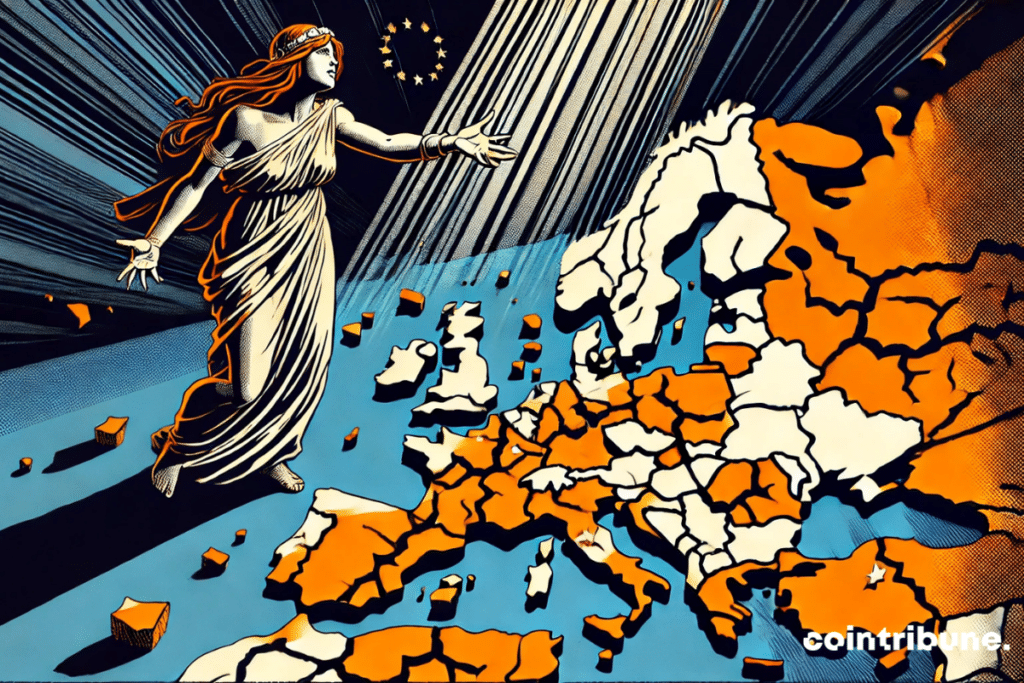The great European powers could disappear from the world's top 10 by then
According to economic projections and analysis by international experts, no European economy will be among the top ten global powers by 2050.

Europe is losing its economic influence
“Europe is in decline and the loss of its influence will be accompanied by a decrease in its very high standard of living,” warns Jorge Dezcallar de Mazarredo, former director of Spanish intelligence services, in an interview with BBC Mundo. His analysis is supported by concerning economic indicators.
The eurozone is experiencing a period of stagnation, with predicted growth of only 0.9% in 2024. An alarming figure for a region that still represents one-fifth of global GDP, positioning it now behind other major global economic areas.
The historical pillars of the European economy are shaking. Indeed, France and Germany, long considered the engines of the continent, are showing worrying signs of fatigue. This weakening occurs in a context already strained by Brexit, which has profoundly shaken European economic cohesion.
The demographic decline exacerbates this situation. “In 1900, Europe accounted for 25% of the world’s population and today it accounts for less than 6%. With this 6%, it still holds 17% of global GDP,” reminds Dezcallar, highlighting a growing imbalance.
This reality creates a striking paradox: Europe maintains a standard of living among the highest in the world, even as its weight in the global economy is inexorably eroding.
This trend is already manifesting itself through concrete changes in the global economic hierarchy. The recent overtaking of the United Kingdom by India in terms of GDP eloquently illustrates this historical shift of economic gravity towards Asia.
The challenges of a necessary transformation
“Europe has no common foreign policy, no common military projection capability, no common energy policy and no common immigration policy,” analyzes Dezcallar, pointing out the structural weaknesses of the continent.
The Draghi report drives the point home by emphasizing the need for massive investment – 800 billion euros per year – to save the European economy.
The situation is even more worrying in the face of external threats. The return of Donald Trump to the White House raises the risk of a devastating trade war.
As the former Spanish diplomat reminds us: “Customs duties of 10 to 20% would harm the European economy, but that’s not all.” Divergence on environmental policies could also hinder the competitiveness of European companies on the international stage.
The reality is relentless: “Today, 62% of global GDP and 65% of the world’s population are located in the Indo-Pacific region,” observes Dezcallar, thereby illustrating the historical shift of economic power from the Atlantic to the Indo-Pacific.
To avoid an irreversible decline, Europe must urgently reinvent its economic model. Without a deeper integration of its policies and an ambitious modernization of its productive apparatus, the continent risks watching its economic influence erode inexorably.
Maximize your Cointribune experience with our "Read to Earn" program! For every article you read, earn points and access exclusive rewards. Sign up now and start earning benefits.
Passionné par le Bitcoin, j'aime explorer les méandres de la blockchain et des cryptos et je partage mes découvertes avec la communauté. Mon rêve est de vivre dans un monde où la vie privée et la liberté financière sont garanties pour tous, et je crois fermement que Bitcoin est l'outil qui peut rendre cela possible.
The views, thoughts, and opinions expressed in this article belong solely to the author, and should not be taken as investment advice. Do your own research before taking any investment decisions.